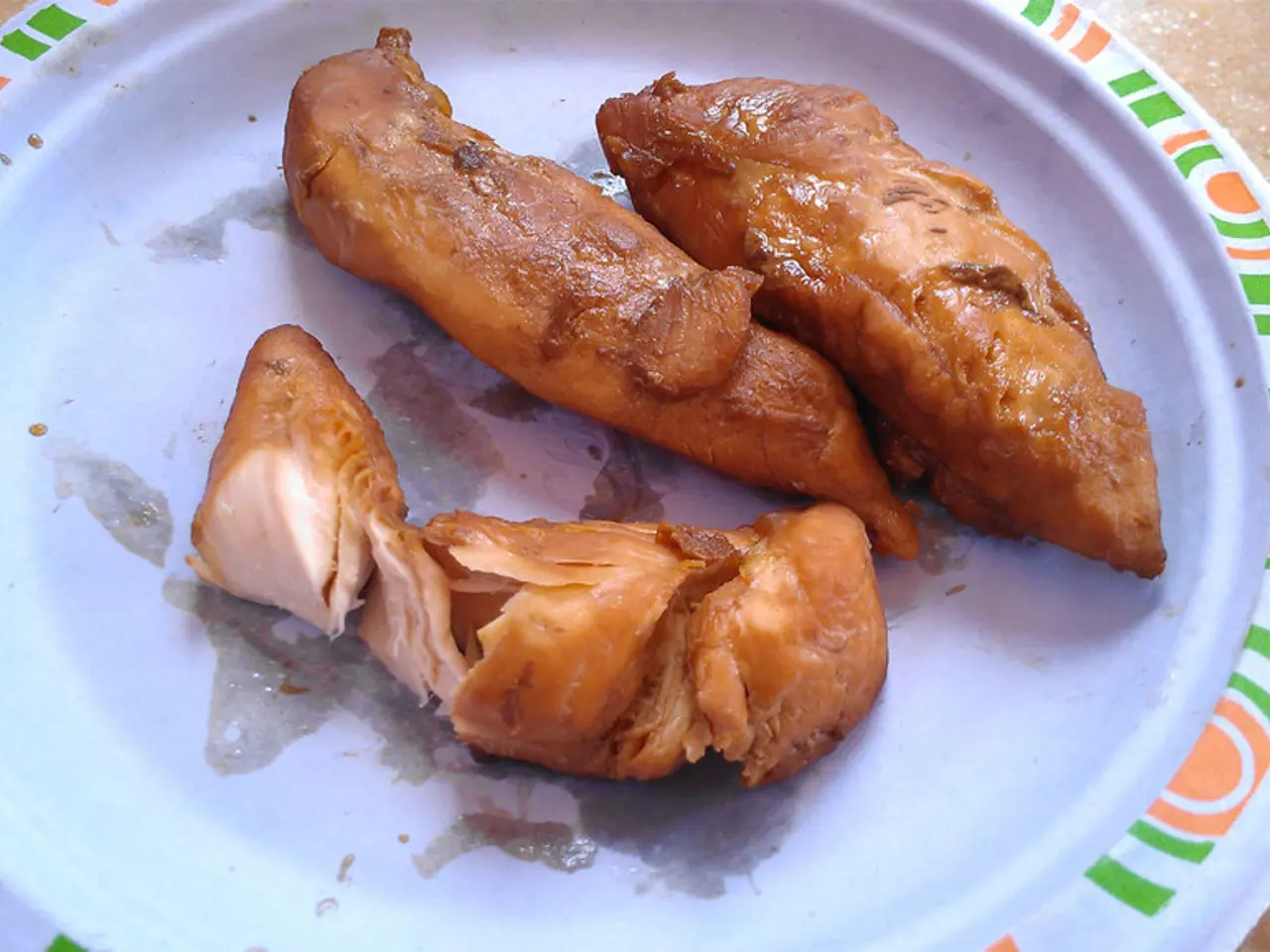Continued Trichinella Surveillance Remains Feasible
In the region of Rhein-Kreis Neuss, Germany, the Veterinary and Food Safety Office plays a crucial role in ensuring the safety of the food supply. One of the key responsibilities of this office is the examination of slaughtered pigs, horses, and hunted wild boars for Trichinella larvae, a parasitic roundworm that can cause the disease trichinosis in humans.
Trichinosis, transmitted through the consumption of undercooked or raw meat containing Trichinella larvae, is a significant public health concern. The most common species affecting humans is Trichinella spiralis.
The importance of detecting Trichinella larvae in pork cannot be overstated. It serves three primary purposes:
- Public Health: Early detection helps prevent human infections, as trichinosis can cause serious health issues such as muscle pain, fever, and gastrointestinal symptoms.
- Food Safety Regulations: In the European Union, routine testing for Trichinella in pork is mandatory for certain types of pigs to ensure food safety.
- Economic Impact: Outbreaks of trichinosis can lead to significant economic losses for the pork industry, including costs associated with testing, carcass condemnation, and potential trade restrictions.
In 2020, 409 hunted wild boars were examined for trichinella in the in-house lab of Rhein-Kreis Neuss. Unfortunately, 26 of these wild boars were found to be infected with the parasite. However, no known infection of Trichinella has been found in the examined pigs or hunted wild boars in Rhein-Kreis Neuss.
The office of Rhein-Kreis Neuss recently passed the "Labor intercomparison study for the detection of Trichinella larvae in pork using the digestion method 2021." This demonstrates the office's commitment to maintaining high standards in Trichinella detection.
It is worth noting that, in the past, much meat from small and sideline farms was in circulation. However, nowadays, only the samples from seven slaughtering butcheries and those of hunted wild animals are examined. Two of the nine slaughtering butcheries in Rhein-Kreis Neuss have stopped slaughtering pigs in 2021.
If the lab of Rhein-Kreis Neuss were to lose its authorization, samples would be sent to the Veterinary Investigation Office in Krefeld.
For the most accurate and up-to-date information specific to Rhein-Kreis Neuss, it is recommended to consult local health authorities or veterinary services. They can provide detailed data on Trichinella detection and management practices in the region.
- The 'food-and-drink' industry, particularly the pork sector, must adhere to strict 'health-and-wellness' standards established by authorities to safeguard consumers against 'medical-conditions' such as trichinosis, a disease caused by consuming meat contaminated with the parasite Trichinella larvae.
- Ensuring 'lifestyle' choices align with 'health-and-wellness' guidelines can help prevent the potential risks associated with trichinosis, as the disease can cause severe symptoms like muscle pain, fever, and gastrointestinal issues.
- Home-grown food production, such as hunted wild boars, must also comply with 'food-safety' regulations to minimize the occurrence of 'medical-conditions' like trichinosis, which can have significant economic impacts on the 'lifestyle' and 'health-and-wellness' sectors.




